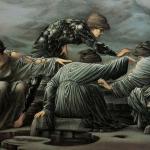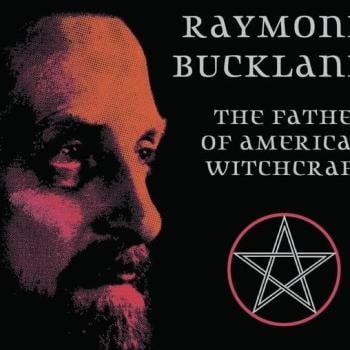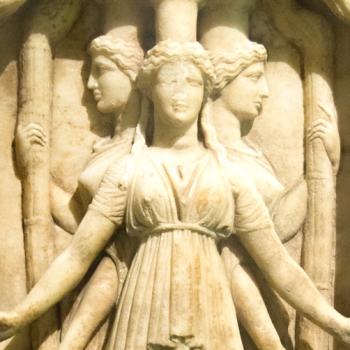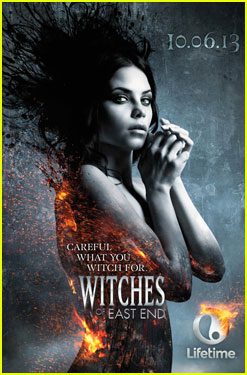 Did you know that Patheos (the site that hosts this website) and Time magazine have an arrangement where Time will periodically run a Patheos article on its website? You probably didn’t know that because Time never runs Pagan articles (they could really have their pick of great Samhain/Halloween articles at Patheos Pagan), and apparently they don’t read Patheos Pagan either. Just three days ago a writer for Time (Jennifer Latson) wrote an absolutely head in the sand article about witchcraft called Why Witches on TV Spell Trouble in Real Life.
Did you know that Patheos (the site that hosts this website) and Time magazine have an arrangement where Time will periodically run a Patheos article on its website? You probably didn’t know that because Time never runs Pagan articles (they could really have their pick of great Samhain/Halloween articles at Patheos Pagan), and apparently they don’t read Patheos Pagan either. Just three days ago a writer for Time (Jennifer Latson) wrote an absolutely head in the sand article about witchcraft called Why Witches on TV Spell Trouble in Real Life.
(Correction: Time has run one article from Patheos Pagan, and did so back in July of this year. I regret the error. In my defense I was out at the Sirius Rising Festival that week.)
I don’t think Ms. Latson’s article was intentionally insulting. She was simply trying to rationalize the explosion of Witch-themed shows on cable television. Fair enough, that’s the kind of article we all expect this time of year, but her execution was exceedingly poor. I think this was the most poorly constructed paragraph in her article (though, as we shall see, it’s not alone):
The difference, of course, is that terrorists are real, while witches are not. (emphasis Mankey) That wasn’t always an “of course,” however: witches were as real to the colonists as smallpox, and even more dangerous, since there was no limit to the extent and variety of damage they could inflict under Satan’s command. When the Salem trials finally stopped — nine months after the apparent bewitching of a minister’s daughter and niece prompted a community-wide freak-out that led to more than 150 arrests — it wasn’t because the colonists no longer believed in witches. Educated people still considered them a threat well into the 18th century.
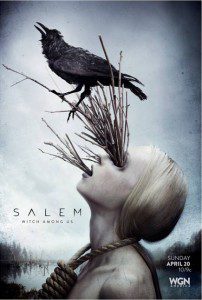 Granted there are several different definitions of the word witch but to write “witches are not” real is a complete head-scratcher. Google the word “Witchcraft” and the first thing that comes up is a Wikipedia article that includes Modern Witchcrafts (such as Wicca). Whether or not there’s a link between us and the “witches” who were executed by the Puritans is inconsequential. There’s perhaps a million Americans who self-identify as Witches, and it’s not hard to find them. Wicca is in US Army Chaplain’s Handbook and that entry does include the word “Witch.”
Granted there are several different definitions of the word witch but to write “witches are not” real is a complete head-scratcher. Google the word “Witchcraft” and the first thing that comes up is a Wikipedia article that includes Modern Witchcrafts (such as Wicca). Whether or not there’s a link between us and the “witches” who were executed by the Puritans is inconsequential. There’s perhaps a million Americans who self-identify as Witches, and it’s not hard to find them. Wicca is in US Army Chaplain’s Handbook and that entry does include the word “Witch.”
Given the rising number of Witches (and Pagans) in the United States I’m surprised to continually see us so forgotten about. There are two million Muslims in the United States are they too “not real?” Perhaps those of us in minority religions who don’t meet some sort of mystical numerical threshold in Ms. Latson’s mind simply don’t exist in the United States? I can’t just blame Ms. Latson either, I’m sure she has an editor who could have said “you know there are people out there who self-identify as Witches . . ” Sadly it didn’t happen.
There’s also a weird connection between witchcraft and terrorism present in Latson’s article. She’s not saying that witches are terrorists but she does link the recent uptick in “witch television” to the aftermath of 9/11. Quoting from historian Emerson Baker (author of A Storm of Witchcraft: The Salem Trials and the American Experience) she writes:
So what’s behind today’s renewed obsession with witches? Baker, a history professor at Salem State University, argues that it could have its roots in the post-9/11 panic over terrorism and what could be seen as a Salem-like erosion of civil rights in the name of security — or, more recently, in the revelations that the National Security Agency seems to be spying on ordinary citizens as stealthily as neighbors spied on neighbors in colonial Salem.
Witches, like terrorists, “threaten to wipe out everything you believe in. If they could, they would overthrow your government, overturn your faith, and destroy your society,” Baker writes.
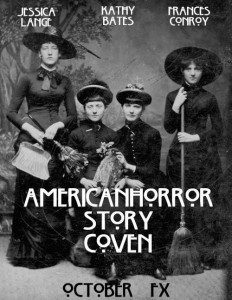 There are two troubling things about these paragraphs. I know that no harm was meant by equating witches to terrorists, but given the general level of stupidity in this country maybe it’s not a good idea? On Wednesday a young man was murdered for practicing Witchcraft. It didn’t happen in a third world country, it happened right here in the United States. Given the influence and reach of Time magazine online perhaps a few qualifiers in the article would have come in handy? Evangelicals take things out of context all the time. It’s not a reach to suggest that someone might quote this article and write that “witches would . . . overturn your faith, and destroy your society.” A paragraph in there somewhere about Modern Witchcraft and how Modern Witches don’t do such things would have been nice.
There are two troubling things about these paragraphs. I know that no harm was meant by equating witches to terrorists, but given the general level of stupidity in this country maybe it’s not a good idea? On Wednesday a young man was murdered for practicing Witchcraft. It didn’t happen in a third world country, it happened right here in the United States. Given the influence and reach of Time magazine online perhaps a few qualifiers in the article would have come in handy? Evangelicals take things out of context all the time. It’s not a reach to suggest that someone might quote this article and write that “witches would . . . overturn your faith, and destroy your society.” A paragraph in there somewhere about Modern Witchcraft and how Modern Witches don’t do such things would have been nice.
While it’s certainly possible that the current interest in witches comes from 9/11 on some sort of unconscious level, I think the assertion ignores history. The last big “witch moment” occurred in the mid-90’s, completely separate from anxieties over terrorism. “Witchcraft” as a cultural trope might simply be due, since it seems to rise up from the cultural firmament every fifteen to twenty years or so. Witches on television are often the “good gals” (I wanted to write “good guys” there, but witches on television are almost always female, which might be why I sometimes get called a “warlock”) opposing threats.
To Latson’s credit she does mention that witchcraft on tv and in the movies is sometimes an empowering force, which is why it’s often so popular:
“In the ’60s, you have a culture that is very much worried about the Cold War,” he says. “You can hit that with the evil witch, but if you have Samantha Stephens [of Bewitched], who can wiggle her nose and make it go away, then she becomes an empowering figure for people who have little control.”
By that point it might be too little too late. The article has already established that witches aren’t “real” and made some serious reaches between witchcraft, 9/11, and terrorism. It’s fascinating to see “witchcraft” portrayed on TV and to wonder about the reasons for its most recent resurgence, but one can’t really write about it today without acknowledging that “Witches” are here in the present. We are an active and thriving religious and spiritual community. I acknowledge there’s a difference between us and the then-witches of Salem, but our practices have influenced the portrayal of witches on television and will continue to do so. Witches are real, make a note of it.
(There is a petition out there asking for an apology from Time, along with an article accurately portraying Witchcraft and Paganism. I’m not completely onboard with the way its worded, but certainly agree with the sentiment. You can access that by clicking here.)



